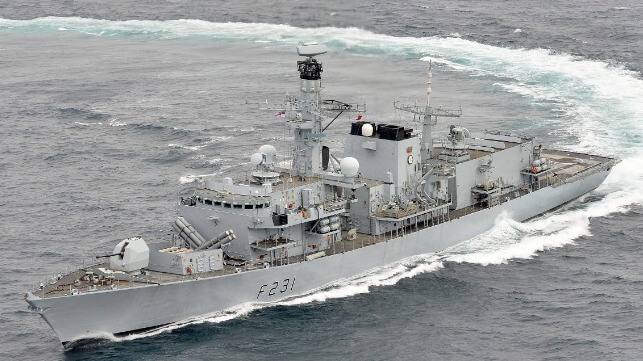UK Parliament Calls for Faster Modernization of the Royal Navy's Fleet

The House of Commons Defence Committee has authored a report castigating the UK government for cutting budgetary allocations to the Royal Navy, which has left the senior service operating too many "elderly vessels” in a security environment that is becoming less stable.
The report - titled “We’re going to need a bigger Navy” - suggests that in order to deal effectively with an increasingly complex international security environment, the Royal Navy needs more ships, armed with more lethal weapons.
“The next ten years will prove a test for our naval fleet. The UK is faced with an increasingly hostile and unpredictable international environment but the government is still reducing funding, retiring capability and asking the navy to rely on increasingly elderly vessels for the next five years until new ships come in,” said Tobias Ellwood, Defence Committee chair.
According to the report, delays in crucial procurement programs mean that old ships are becoming increasingly difficult to maintain and spend too long unavailable for operations, while maintenance for newer ships takes too long. Notably, the budget for operations and maintenance is tight and will likely lead to yet more ships sitting in port, failing to deter increasingly emboldened adversaries.
The report cited the longstanding issue with the Type 45 destroyers’ propulsion system as a case in point. The six vessels are not scheduled to be fixed until 2028, and there are already signs that the schedule target may be slipping. In effect, only 50 percent of the Type 45 destroyers are currently available for deployment.
“When ships do get to sea they act like porcupines - well defended herbivores with limited offensive capabilities. This is a result of decisions by successive governments to limit budgets and prioritize defensive capabilities,” observed the report.
It added that the offensive capabilities of the current fleet are set to reduced even further in three years' time, when the government plans to retire the Harpoon anti-ship missile without a replacement.
In addition, three important vessels - RFA Argus, RFA Fort Victoria and HMS Scott - will also retire without replacements, meaning the navy will likely lose its current ability to provide medical care, replenish vessels at sea and monitor the sea bed.
“The fleet is increasingly reliant on allies for many capabilities, with a limited scope to act independently, and the government needs to do more at the political level to ensure this support will be provided when needed,” the report added.
Although the UK government is planning to replace many essels in its fleet over the next 20 years under the Integrated Review program, it will only start taking deliveries after six years. Part of the program involves replacing the aging Type 23 frigates with Type 26 and Type 31 frigates, ship for ship.
